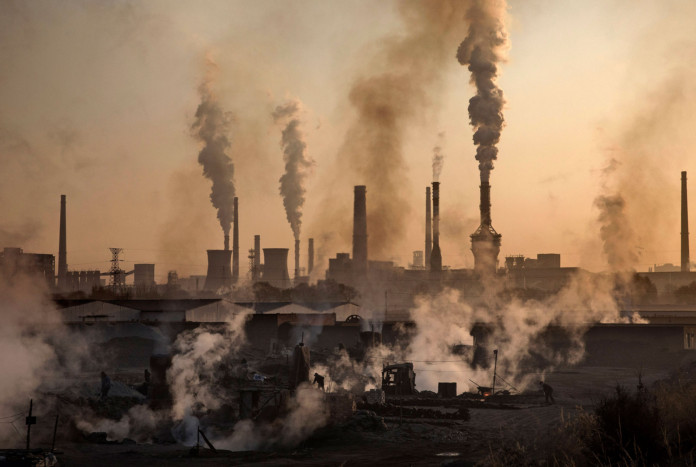It’s well known that Indians are paying a mindboggling price for polluted air with their health. And the Indian economy and businesses too are suffering massive losses. For the first time, there’s data to show the extent of such losses.
Dalberg Advisors, in partnership with Clean Air Fund and Confederation of Indian Industry, has estimated a colossal loss of $ 95 billion or Rs. 7 lakh crores, which is 3% of India’s GDP, 50% of tax collected annually.
At least now, will policy makers, business leaders and civil society wake up to take radical measures? Time for incrementalism and green washing is over. The same advisory firm, CII and Clean Air Fund should do another report on the outcome of measures taken in the last five years.
Dalberg estimates that India’s workers take 1.3 billion days off work annually because of the adverse effects of air pollution on their health, amounting to USD 6 billion in lost revenue. Air pollution has also been shown to have significant effects on workers’ cognitive and physical performance, lowering their on-the-job productivity and thereby decreasing business revenues by up to USD 24 billion.
Further impacting the national economy, the report found that lower air quality also reduces consumers’ willingness to venture out of their homes, leading to lower footfall and ultimately USD 22 billion less revenue for consumer-facing businesses.
India had 1.7 million premature deaths from air pollution in 2019, 18% of all deaths in India, a figure that is projected to increase by 2030, making India a major contributor to the global economic cost of premature mortality. In economic terms the lost working years cost the Indian economy USD 44 billion in 2019.
The report further reveals that India’s IT sector, the source of 9% of the country’s GDP and a magnet for foreign investment, is disproportionately affected, losing USD 1.3 billion due to pollution-induced productivity loss per year. If air pollution continues to increase at currently projected rates, this figure could nearly double by 2030.
India has grown to become the world’s fifth most polluted country in the last decade and has 21 of the world’s 30 most polluted cities. As India’s median age rises from 27 in 2019 to 32 in 2030, vulnerability to air pollution will increase as mortality due to air pollution-linked pulmonary problems and lung cancer will grow at an accelerated pace, as these illnesses tend to affect the elderly harder.
Says Gaurav Gupta, Partner, Asia Director, Dalberg, “It has now become important for Indian business to include air emissions in their profit and loss statements. Clean air is a precondition for businesses to thrive – and for India to realise its vision of becoming a USD 5 trillion economy by 2025. Achieving this goal would require industry leaders to take more ownership and become advocates in the movement for cleaner air.”
Dalberg is an impact advisory group that combines strategy consulting, design thinking, data analytics, and research to address complex social, economic, and environmental challenges. It works collaboratively with communities, institutions, governments, and corporations to develop solutions that create impact at scale. It has offices in 30 locations worldwide. www.dalberg.com
To Seema Arora, Deputy Director General, CII, “Business solutions to this crisis as per our findings include ‘’greening’’ business operations and supply chains, adopting renewable energy technology, mitigating emissions through CSR activities, and campaigning for more ambitious pollution policies. We believe that through active and sustained collaboration between the public and private sectors, bluer skies and a healthier economy can soon become India’s reality.”
CII is part of the ‘India CEO Forum for Clean Air’. It’s a platform to galvanize industry efforts to find lasting solutions to deteriorating air quality. The forum was formed in July 2019 and currently 50 industry members are active.
The report notes that air pollution has a substantial impact on India’s economy, alongside the health and environmental impact and that by improving its air quality, India will not just be healthier but also wealthier.
The Clean Air Fund is a philanthropic initiative with a mission to tackle air pollution around the world. It brings together funders, researchers, policy makers and campaigners to find and scale solutions for clean air for all. www.cleanairfund.org
Full report – http://bit.ly/airpollutioncosts











